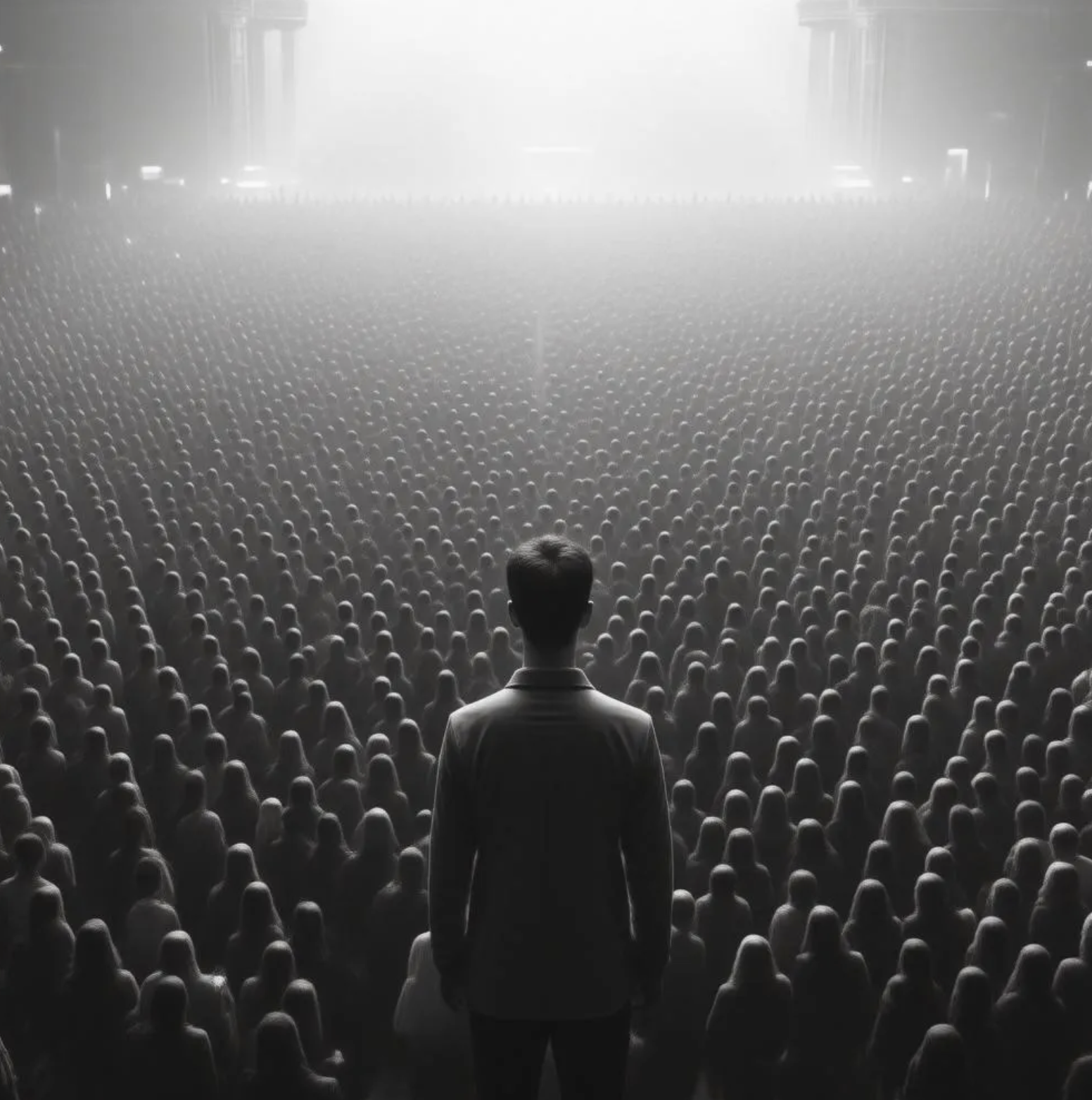Superstar Psychs? What’s happening to this world.
Gabor Maté and Jordan Peterson are hardly household names in the traditional sense. They aren’t pop stars, athletes, or politicians. Yet, they’ve achieved a level of public recognition that puts them in a similar realm: selling out large venues, commanding devoted audiences, and sparking intense public discourse. These therapists and psychologists, armed with their respective (and often divergent) approaches to the human psyche, have tapped into something deeply resonant in our contemporary culture. But what exactly? Is it a genuine thirst for self-understanding, or a symptom of something more troubling – an obsession with self-optimization that risks losing sight of genuine connection and societal responsibility?
The Rise of the Mind Guru: Tapping into Existential Angst
The rise of Peterson and Maté to arena-filling status is undoubtedly a multifaceted phenomenon, but a key factor is their ability to articulate and address the existential angst that permeates modern life. In an age of rapid technological change, economic uncertainty, and social fragmentation, many individuals feel a profound sense of disorientation and a lack of meaning.
- Peterson, the Order Bringer: Jordan Peterson gained notoriety with his “12 Rules for Life,” which offers a blend of traditional wisdom, self-help principles, and Jungian psychology. He provides a framework for individual responsibility, emphasizing the importance of order, discipline, and facing life’s challenges with courage. In a world often perceived as chaotic and nihilistic, Peterson offers a reassuring message of structure and purpose.
- Maté, the Compassionate Witness: Gabor Maté, on the other hand, approaches the human condition with a deep sense of empathy and compassion. He explores the connections between childhood trauma, addiction, and physical and mental illness. Maté’s message is one of understanding, healing, and self-acceptance. He invites audiences to explore their vulnerabilities and to find solace in the shared human experience of suffering.
Both figures, in their own distinct ways, offer a roadmap for navigating the complexities of modern life and for finding meaning and purpose in a seemingly indifferent universe. They resonate with individuals who are searching for answers, direction, and a sense of belonging.
The Self-Help Industrial Complex: A Culture of Self-Improvement
However, the popularity of Peterson and Maté must also be viewed within the broader context of the self-help industry. In contemporary Western culture, there’s an intense emphasis on self-improvement, self-optimization, and personal growth. This emphasis is fueled by a variety of factors, including:
- Consumer Culture: The relentless marketing of products and services promising to enhance our lives, from fitness programs to productivity apps to mindfulness retreats, fosters a constant sense of inadequacy and a belief that we can always be better.
- Social Media: The curated perfection presented on social media platforms creates unrealistic expectations and fuels a desire for self-improvement and validation.
- Economic Precarity: In an increasingly competitive job market, individuals feel pressured to constantly improve their skills and qualifications to remain employable.
This culture of self-improvement can be both empowering and detrimental. On the one hand, it can encourage individuals to take responsibility for their lives, pursue their goals, and develop their potential. On the other hand, it can lead to a relentless pursuit of perfection, a constant sense of inadequacy, and a neglect of other important aspects of life, such as social connection, community involvement, and political engagement.
The Perils of Naval Gazing: Losing Sight of the Bigger Picture
This is where the ethical considerations surrounding Peterson and Maté’s arena shows come into play. While their messages can be genuinely helpful and inspiring, there’s also a risk that they can contribute to a culture of self-obsession and a neglect of broader social and political issues.
- Individualism vs. Collectivism: Peterson’s emphasis on individual responsibility can, at times, veer into a form of rugged individualism that downplays the role of social structures and systemic inequalities in shaping individual outcomes.
- Privilege and Access: Access to therapy, self-help resources, and personal growth opportunities is often limited to those with financial resources and social privilege. Focusing solely on individual solutions can obscure the need for systemic change to address social inequalities.
- The “Solution” as Entertainment: There’s an inherent contradiction in the very nature of these arena shows. The therapeutic process is typically intimate, individualized, and focused on building a trusting relationship between therapist and client. Transforming therapy into a mass spectacle risks diluting its effectiveness and turning it into a form of entertainment.
A Quest for Meaning, or a Comforting Illusion?
Ultimately, the popularity of Peterson and Maté’s arena shows reflects a complex interplay of factors. On the one hand, it speaks to a genuine desire for self-understanding, meaning, and connection in a world that often feels alienating and disorienting. On the other hand, it can also be seen as a symptom of a culture that prioritizes self-improvement and individual success over collective well-being and social justice.
Whether these shows represent a genuine quest for meaning or a comforting illusion remains an open question. It is important to approach them with a critical eye, recognizing both their potential benefits and their potential pitfalls. We must strive to balance the pursuit of individual well-being with a commitment to building a more just and compassionate society. The answers, ultimately, lie not just within ourselves, but in our engagement with the world around us.
